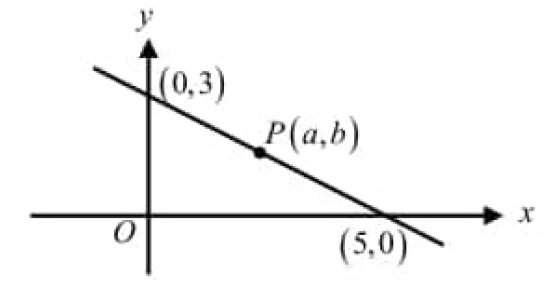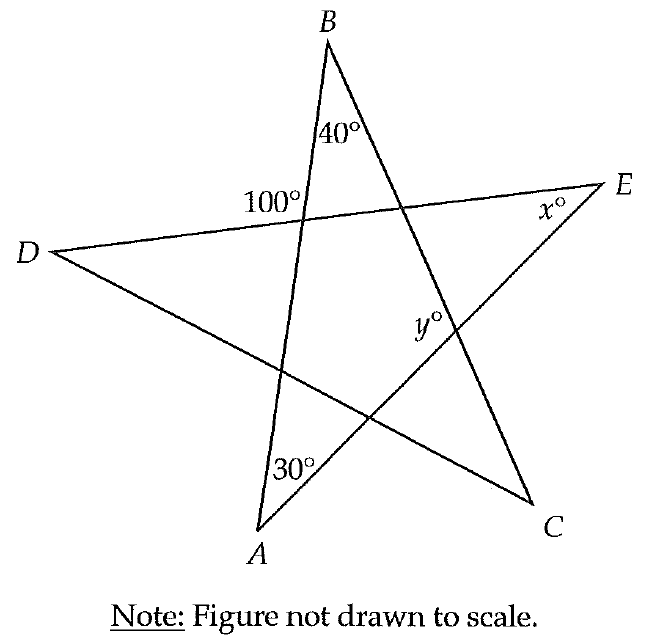BINOMIAL EXPANSION PRACTICE QUESTIONS
Question 1 :
If a and b are distinct integers, prove that a − b is a factor of an − bn, whenever n is a positive integer. [Hint: write an = (a − b + b)n and expand]
Solution :
an = [(a - b) + b]n
an = nC0(a-b)n+nC1(a-b)n-1b1+nC2(a-b)n-2b2+nCn-1(a-b)bn-1+ nCnbn
an - bn = (a-b)n+nC1(a-b)n-1b1+nC2(a-b)n-2b2+nCn-1(a-b)bn-1
an - bn
= (a-b) { (a-b)n-1 + nC1(a-b)n-2b + nC2(a-b)n-3b2 + nCn-1bn-1 }
Hence a − b is a factor of an − bn, whenever n is a positive integer.
Question 2 :
In the binomial expansion of (a + b)n, the coefficients of the 4th and 13th terms are equal to each other, find n.
Solution :
The coefficients of the fourth ad thirteenth terms in the binomial expansion of (a + b)n are nC3 and nC12 respectively.
Coefficient of 4th term in (a+b)n = coefficient of 13th term in (a + b)n
nC3 = nC12
If nCx = nCy ==> x = y or x + y = n
n = 15
Question 3 :
If the binomial coefficients of three consecutive terms in the expansion of (a + x)n are in the ratio 1 : 7 : 42, then find n.
Solution :
Let the three consecutive terms be rth, (r+1)th and (r+2)th terms.Their coefficients in the expansion of (1+x)n are nCr-1, nCr and nCr+1 respectively. It is given that,
nCr-1 : nCr : nCr+1 = 1 : 7 : 42
nCr-1 / nCr = 1 / 7
r/(n-r+1) = 1/7
n - 8r + 1 = 0 ----(1)
nCr : nCr+1 = 7/42
r+1/n-r = 1/6
n - 7r - 6 = 0 -----(2)
(1) - (2) ==> (n - 8r + 1) - (n - 7r - 6) = 0
n - n - 8r + 7r + 1 + 6 = 0
-r + 7 = 0 ==> r = 7
By applying the value of r in the 1st equation, we get
n - 8(7) + 1 = 0
n - 56 + 1 = 0
n = 55
Hence the values of n and r are 55 and 7 respectively.
Question 4 :
In the binomial coefficients of (1 + x)n, the coefficients of the 5th, 6th and 7th terms are in AP. Find all values of n.
Solution :
The coefficients of 5th, 6th and 7th terms in the binomial expansion of (1+x)n are nC4, nC5 and nC6 respectively,We are given that
2 nC5 = nC4 + nC6
2 = (nC4)/(nC5) + (nC6)/(nC5)
2 = 5/(n-4) + (n-5)/6
2 = [30 + (n-4)(n-5)]/[6(n-4)]
12(n-4) = = [30 + (n2 - 4n - 5n + 20)]
12n - 48 = 30 + n2 - 9n + 20
n2 - 9n + 20 - 12n + 48 + 30 = 0
n2 - 21n + 98 = 0
(n - 14) (n - 7) = 0
n - 14 = 0 n - 7 = 0
n = 14, n = 7
Question 5 :
Prove that

Solution :
n C 0 = C0 , n C 1 = C1 ,...............
L.H.S
= (C0)2+ (C1)2 + (C2)2 + ............. + (Cn)2
= (nC0)2 + (nC1)2 + (nC2)2 + .................. + (n C n)2
= (nC0)(nC0) + (nC1)(nC1) + (nC2)(nC2) + ................. (nCn)(nCn)
= (nC 0)(nCn-0) + (nC1)(nCn-1) + (nC2)(nCn-2) + ................. (nCn)(nCn-n) -----(A)
(1 + x)n = nC0 1n x0 + nC1 1n-1 x1 + nC2 1n-
2 x2 + ..........+ nCn-1 1n-1 xn-1 + nCn 1n-nxn
(1 + x)n = nC0 + nC1 x1 + nC2 x2 + ..........+ nCn-1 xn-1 + nCn xn ----(1)
By writing the expansion in reverse order, we get
(1 + x)n = nCn xn + nCn-1 xn-1+ ..........+ nC1 x1 + nC0---(2)
(1) ⋅ (2)
(1 + x)2n = nC0 nCn + nC1 nCn-1 + ..................... + nC1 nCn-1 + nC0 nCn ----(B)
Since (A) and (B) are equal, we may consider the simplified value of L.H.S is (1 + x)2n
Tr + 1 = n C r xn-r ar
x = 1, a = x and n = 2n
Tr + 1 = 2n C r 12n-r xr
here r = n
Tn + 1 = 2n C n 12n-n xn
= 2n!/n(2n-n)! 1n xn
Coefficient of xn = (2n)!/(n!)2
Hence proved.
Kindly mail your feedback to v4formath@gmail.com
We always appreciate your feedback.
©All rights reserved. onlinemath4all.com
Recent Articles
-
Digital SAT Math Problems and Solutions (Part - 134)
Apr 02, 25 12:40 AM
Digital SAT Math Problems and Solutions (Part - 134) -
SAT Math Resources (Videos, Concepts, Worksheets and More)
Apr 02, 25 12:35 AM
SAT Math Resources (Videos, Concepts, Worksheets and More) -
Digital SAT Math Problems and Solutions (Part 135)
Apr 02, 25 12:32 AM
Digital SAT Math Problems and Solutions (Part 135)

